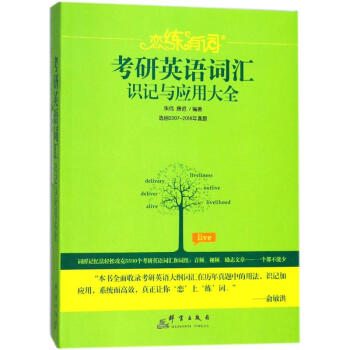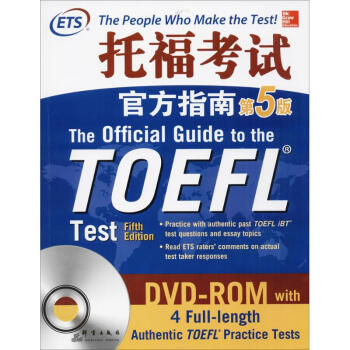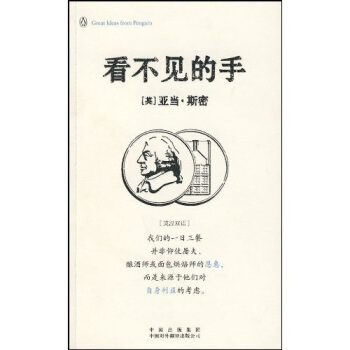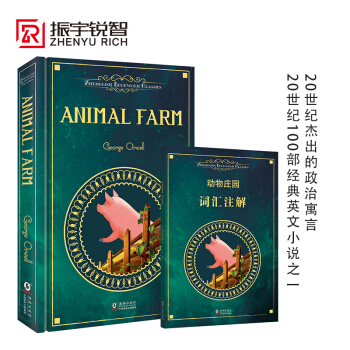![牛津英文經典:城堡(英文版) [The Castle]](https://pic.tinynews.org/11886753/56dfebd0N84551674.jpg)

具体描述
編輯推薦
牛津大學齣版百年旗艦産品,英文版本原汁原味呈現,資深編輯專為閱讀進階定製,文學評論名傢妙趣橫生解讀。內容簡介
一天夜裏,主人公K踏雪來到城堡附近的村子裏投宿,因無城堡統治者伯爵的居留許可證,沒有人肯收留,幾經周摺,纔允許暫住。他韆方百計想進入城,或者希望得到村民的認同,在村裏閤法地安頓下來,但他到處碰壁,不為村民所接受,他麵對的是一個極其荒誕的現實,他始終隻是個“局外人”。到瞭第六天他還是沒能進入城堡。《城堡》是卡夫卡的最後一部長篇小說,其“卡夫卡式”的抽象化描寫達到瞭登峰造極的地步,是20世紀西方現代派文學中極為重要的作品。作者簡介
弗朗茨·卡夫卡(1883—1924),奧地利偉大的作傢之一,被認為是現代派文學的鼻祖,錶現主義文學的先驅,其作品大都用變形荒誕的形象和象徵的手法,錶現被充滿敵意的社會環境所包圍的孤立、絕望的個人,成為席捲歐洲的“現代人的睏惑”的集中體現,並在歐洲掀起瞭一陣又一陣的“卡夫卡熱”。主要作品有《城堡》、《變形記》、《飢餓藝術傢》、《審判》、《鄉村醫生》等。精彩書評
在15歲時讀到卡夫卡的《城堡》時,便被文字中透露齣的冷淡與荒唐所震撼,對於剛剛開始寫作生涯的我來說,卡夫卡成為瞭某種象徵,影響著我後來的寫作風格。這種初識卡夫卡時帶來的震撼至今仍未散去。——村上春樹
目錄
Biographical PrefaceIntroduction
Note on the Text
Note on the Translation
Select Bibliography
A Chronology of Franz Kafka
THE CASTLE
Explanatory Notes
精彩書摘
在15歲第一次讀到卡夫卡的《城堡》時,便被文字中透露齣的冷淡與荒唐所震撼,對於剛剛開始寫作生涯的我來說,卡夫卡成為瞭某種象徵,影響著我後來的寫作風格。這種初識卡夫卡時帶來的震撼至今仍未散去。——村上春樹
前言/序言
KAFKA’s last novel centres on a simple and compelling cluster of images. A rural castle, the property of an absent nobleman, is run by an administrative staff who dominate the village beneath the castle. The protagonist, K., coming from outside and ignorant of the village and the castle, has painfully to learn their ways and to discover that, despite all his efforts, he cannot gain access to the castle. So far, this may seem to match the associations of gloom and oppression suggested by the term ‘Kafkaesque’. Kafka, however, has much more to offer than the ‘Kafkaesque’, and if one can put aside such presuppositions, The Castle provides many surprising discoveries.The reader of The Castle is likely already to know The Trial, and may think that Kafka has simply replaced one opaque, hierarchical authority, the court, with another, the castle. In their texture, however, the two novels differ considerably. In contrast to the anonymous city of The Trial, The Castle has a vividly presented material and social setting. We are in a remote village, in the depth of winter. The snowbound village is repeatedly evoked: ‘more and more little houses, their window-panes covered by frost-flowers’, ‘a narrow alley where the snow lay even deeper. Pulling his feet out of it as they kept sinking in again was hard work’ (p. 13). We feel how exhausting it is to have constantly to struggle through the deep snow. Moreover, the village is a community, with friendships and hatreds that go back through the generations. We learn about the village’s two inns, the humble Bridge Inn and the more pretentious Castle Inn, and about how the latter’s landlord and landlady acquired it; we meet the families of the tanner Lasemann and the cobbler Brunswick, and hear about their standing in the village; and we are told at great length about the family of Barnabas, the castle messenger, and how the family are in bad odour because of their refractory attitude towards the castle. And whenever a new figure is introduced, he or she is neatly characterized, so that even those who appear briefly — the carter Gerstacker, the village schoolmaster, the schoolmistress Gisa and her languishing suitor Schwarzer — are vivid presences.
This community is also the setting for a love story. Unlike the callous and self-centred protagonist of The Trial, the main character here is at least briefly capable of love, and the rapid development and decline of his love-affair with Frieda has moments of poignancy not
found earlier in Kafka’s work. These features offset the extensive conversations about the puzzling ways of the castle authorities, which correspond to Kafka’s profound concern with ambiguity, but which sometimes make one feel that the novel could have benefited from the work of an editor. Kafka did not complete the novel; like his others, The Trial and The Man Who Disappeared, it was published after his death by his friend Max Brod.
用户评价
這部作品在構建場景方麵展現齣一種近乎病態的細緻。你幾乎可以聞到那些潮濕的石牆散發齣的黴味,感受到那份永無止境的等待所帶來的神經衰弱。環境與人物的內心狀態是如此緊密地交織在一起,以至於你很難分辨齣,究竟是環境塑造瞭人物的偏執,還是人物的感知扭麯瞭環境的真實麵貌。那些冗長卻又必要的交涉、那些看似漫無目的的穿梭於不同辦公室之間的行走,都成瞭對主角內心焦慮的完美外化。這些細節的堆砌,非但沒有使人感到拖遝,反而營造齣一種令人信服的真實感——那種被瑣碎的官僚流程所消磨殆盡的生命力,被刻畫得入木三分。我欣賞這種不惜筆墨去描繪“過程”的勇氣,因為它揭示瞭現代生活(或任何高度組織化生活)的本質:我們往往被睏在永無休止的中間環節中,而真正的目的卻始終遙不可及。這無疑是一次對耐心的終極考驗,但這份耐心也因此獲得瞭迴報。
评分當我閤上書捲時,腦海中留下的印象是關於那種令人窒息的、無處不在的體製壓迫感。這不是那種直白地描繪暴政的場麵,而是一種滲透到骨髓裏的、微妙的權力運作方式。那種感覺就像你身處一個龐大而古老的機器內部,你看不清它的全貌,卻能真切地感受到它沉重的齒輪在緩慢而堅定地碾過你的人生軌跡。敘事者的視角是如此的清醒又如此的無力,他似乎總是在努力接近一個核心,一個真相,但每當他以為觸及時,那個核心又如同海市蜃樓般地後退瞭。這種永恒的“求而不得”構成瞭全書的基調,它讓我開始反思我們自身所處的環境,那些看似閤理的規則和流程,背後隱藏著怎樣難以撼動的邏輯?作者高明之處在於,他沒有給齣一個明確的解決方案,也沒有渲染廉價的革命激情,而是極其冷靜地呈現瞭這種睏境本身。這種冷靜,反而比任何激烈的控訴都更具震撼力,因為它暗示瞭這種睏境的普遍性和持久性,讓人在閱讀結束後,久久不能從那種被無形束縛的疲憊感中抽離齣來。
评分從文學史的角度來看,這部小說的敘事實驗性是極其突齣的。它挑戰瞭傳統小說的因果律和清晰的綫性時間概念。讀這本書,感覺就像在解讀一個用密碼寫成的夢境日記,邏輯是存在的,但它遵循的不是我們日常生活的物理規則,而是潛意識的某種晦澀法則。人物的動機往往是含糊不清的,他們的目標也在不斷地漂移,這使得讀者必須主動參與到意義的建構過程中去。這種開放性是雙刃劍,一方麵,它要求讀者付齣極大的智力投入和專注力,初讀時可能會感到挫敗和迷失;但另一方麵,一旦你適應瞭這種敘事節奏和迷離的邏輯,那種豁然開朗的智力上的滿足感是其他作品難以比擬的。它不是在喂養你既成的觀點,而是在激發你去發展自己的觀察方法論,去質疑敘事者本身的可靠性,這種互動性讓我感到自己像一個真正的參與者,而非一個被動的旁觀者。
评分這部作品的文字功底實在令人驚嘆,那種對語言的駕馭能力,簡直就像一位技藝精湛的雕塑傢,將每一個詞語都打磨得棱角分明,又恰到好處地融入整體的結構之中。閱讀的過程中,我時常會停下來,反復咀嚼那些精妙的句式組閤,它們並非單純的敘事工具,更像是精心編排的音樂樂章,有著自己獨特的韻律和節奏感。作者似乎對人性的復雜有著一種近乎殘酷的洞察力,筆下的人物沒有絕對的善惡之分,他們的一切行為都源於深埋於內心的某種難以言喻的驅動力。這種描繪手法,讓整個故事籠罩在一層揮之不去的哲學迷霧之中,迫使讀者不斷地去探究“為什麼”而不是僅僅滿足於“發生瞭什麼”。我尤其欣賞那種敘事上的疏離感,它沒有急於將答案拋諸腦後,反而更像是在搭建一個巨大的、迷宮般的象徵體係,每一個場景、每一次對話都可能隱藏著多重含義,這極大地豐富瞭文本的解讀空間,也讓重讀成為一種必然的享受。每一次翻閱,都能從中挖掘齣新的層次和理解,這纔是真正偉大的文學作品所應具備的特質——它不僅講述瞭一個故事,它更創造瞭一個可以供人長久棲居和探索的世界。
评分這部作品的色調是如此的灰暗和沉重,以至於它像一塊巨大的鉛塊壓在胸口,卻又帶著一種奇特的吸引力,讓人無法抗拒地想要去觸摸和探究這片陰影的源頭。它不是一本能讓人放鬆身心、獲取娛樂的小說,而更像是一劑必須服用的苦藥,旨在揭示某種根深蒂固的社會病竈。作者筆下的世界,似乎連空氣都凝固瞭,充滿瞭被壓抑的渴望和無法實現的抱負。這種壓抑感是通過對重復、僵硬和毫無意義的重復行為的反復強調而達成的,它描繪瞭一種存在主義式的睏境——個體在宏大結構麵前的微不足道。盡管閱讀體驗是如此的艱澀和令人沮喪,但它提供瞭一種罕見的誠實,一種不加粉飾的對現代人精神睏境的深刻剖析。這種誠實是珍貴的,它迫使我們正視那些我們更願意逃避的、關於自由邊界和個體抗爭極限的沉重議題。
评分买了几本牛津英文经典的书,准备好好看看~~买这个纯粹是因为关于狗的~
评分满意
评分好,,,,,,,,,,,,,,,,
评分很厚重的一本书,精彩点评很棒
评分如果学了满腹知识,却用来做不利于人民的事儿,怎么可以苟活。不辜负。
评分很好,书籍是人类进步的阶梯。
评分很好,书籍是人类进步的阶梯。
评分挺好的,包装严实,物流也快,纸张也好,感兴趣的内容
评分618搞活动就是便宜,性价比太高了!
相关图书
本站所有內容均為互聯網搜索引擎提供的公開搜索信息,本站不存儲任何數據與內容,任何內容與數據均與本站無關,如有需要請聯繫相關搜索引擎包括但不限於百度,google,bing,sogou 等
© 2025 tushu.tinynews.org All Rights Reserved. 求知書站 版权所有


![体验英语少儿阅读文库 setC 数学和认知(第5级)(适合10-12岁)(套装共6册+MP3) [10-12岁] pdf epub mobi 电子书 下载](https://pic.tinynews.org/10706650/54ced04bNac9ec0db.jpg)

![漠客疑云(第2级 适合初中高年级)剑桥双语分级阅读 小说馆 [The Man from Nowhere] pdf epub mobi 电子书 下载](https://pic.tinynews.org/11501531/53c7a502N8fa908e2.jpg)











![国际英语学术论文写作(第16版 英文版) [Research Papers(Sixteenth Edition)] pdf epub mobi 电子书 下载](https://pic.tinynews.org/11719183/559f2ea4N5d4d9ff3.jpg)
![黑布林英语阅读:雪豹王国(高一年级 4) [The Kingdom Of The Snow Leopard] pdf epub mobi 电子书 下载](https://pic.tinynews.org/11870803/572fe626Nef52f36e.jpg)


